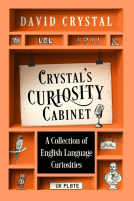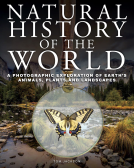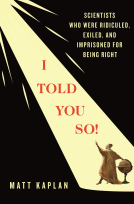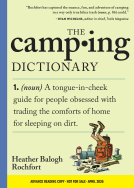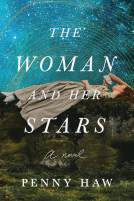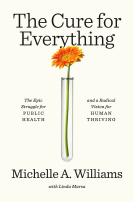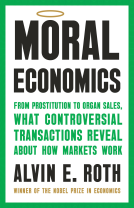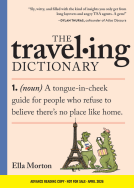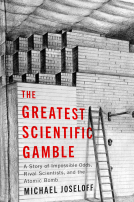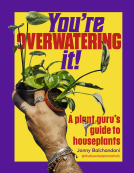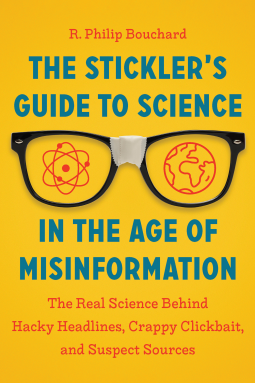
The Stickler's Guide to Science in the Age of Misinformation
The Real Science Behind Hacky Headlines, Crappy Clickbait, and Suspect Sources
by R. Philip Bouchard
This title was previously available on NetGalley and is now archived.
Send NetGalley books directly to your Kindle or Kindle app
1
To read on a Kindle or Kindle app, please add kindle@netgalley.com as an approved email address to receive files in your Amazon account. Click here for step-by-step instructions.
2
Also find your Kindle email address within your Amazon account, and enter it here.
Pub Date Nov 23 2021 | Archive Date Feb 09 2022
Talking about this book? Use #TheSticklersGuidetoScienceintheAgeofMisinformation #NetGalley. More hashtag tips!
Description
The perfect remedy for our culture of fake news, bad science, and propaganda.
We have more scientific information at our fingertips today than ever before. And more disinformation too. Online, on television, and in print, science is often communicated through shorthand analogies and phrases that obscure or omit important facts. “Superfoods,” “right- and left-brained” people, and “global warming” may be snappy and ear-catching but are they backed by scientific facts? Lifelong educator R. Philip Bouchard is a stickler for this kind of thing, and he is well-prepared to set the record straight.
The Stickler’s Guide to Science in the Age of Misinformation unpacks the many misuses of terms we see used every day, revealing how these popular “scientific” concepts fall short of real science. Find out why trees do not “store” carbon dioxide; a day is not actually 24 hours; DNA cannot provide a “blueprint” for a human being; and an absence of gravity is not the reason that astronauts float in space.
Available Editions
| EDITION | Ebook |
| ISBN | 9781643261294 |
| PRICE | $11.99 (USD) |
| PAGES | 280 |
Average rating from 23 members
Featured Reviews
I’m always a sucker for science books, so this one was perfect for me. The author takes multiple phrases and ideas that are so common you hardly ever think about them, and then he actually breaks them down and explains the science (or lack thereof) behind them. I definitely had a fun time learning new details and even getting a few refresher courses on older science.
I love this book. R. Philip Bouchard takes inaccurate or incomplete expressions and, like a stickler, proceeds to show what’s wrong with them. But he doesn’t do this in a pedantic way. He explains in detail and in a conversational tone what actually happens and shows why the expression is wrong, inaccurate or incomplete. All the science is very well-explained in a non-technical manner. He writes with a good sense of humor and adds in personal anecdotes, giving the book a unique tone that should be interesting to readers with or without a science background. Bouchard creates a great relationship with the reader and seems to be the type of author I’d love to meet over coffee. Also adding to the messaging are some very good illustrations and charts. This book is a pleasure to read, and I recommend it for anyone interested in science. Thank you to Netgalley and Timber Press for the advance reader copy.
This title is going to the be new favorite book for everyone in your life who says "Well, actually..."
Bouchard takes a deep dive into the phrases we hear tossed around the scientific community, including the five senses, the Amazon rainforest acting as the lungs of the world, and the idea that there is no gravity in space. With easy to understand language and helpful graphics, THE STICKLER'S GUIDE TO SCIENCE IN THE AGE OF MISINFORMATION is a fun size candy bar for the science curious.
First of all, thanks to #NetGalley and @timberpress for providing me a free e-copy of this book in return for an honest review.
We live in the age of misinformation and unfortunately people relentlessly spread this misinformation, and while people question stuff, it's often not driven from critical thinking but from the urge to be against - without any ounce of thought and compassion. Media helps here, where sensation and clicks and comments are above neutrality and some topics get completely wrong connotations. This book deals with this - how some ingrained popular scientific ideas are, well, not wrong, but actually not quite right.
So the author explains the proper science behind theses like "there is no gravity in space", "people only have five senses", the ever popular "epidemics and pandemics" and one that makes me eye-roll every time I run into it - "superfoods and toxins". The book covers 13 of topics like this, each backed up by science behind it and explained what is off about them and what's the real truth.
The thing is, the huge chunk of this book is what you learn in school so it's a great book to pick up if you wanna refresh your knowledge. But that being said, it reads too much like a school book at times. I expected a more comedic or whimsy approach based on the cover and title. I liked the inclusion of the illustrations, which were simple enough to be easily understood and fit with the text nicely.
As a physicist, I found physics related chapters the most interesting. But since I've been into science for the most of my life, I've already understood most of the concepts from this book so didn't acquire much new information. People who are not that vexed in science would benefit from this book as it's a quick and comprehensive summary of the most popular scientific topics in the media.
The book is out Nov 9, 2021.
 Andrea K, Librarian
Andrea K, Librarian
“Forests are the lungs of the planet.” “There is no gravity in space.” While most of us feel we understand what these statements mean, Bouchard, aka “the stickler” contends that statements like these are imprecise and misleading. In The Stickler’s Guide, he aims to set us straight and encourage readers to examine statements like this critically. The sections were short and easy to understand but not oversimplified. Bouchard’s tone is witty and entertaining. I learned some things and thoroughly enjoyed this. I will be recommending that high school teachers incorporate sections into class readings.
 Victoria I, Media/Journalist
Victoria I, Media/Journalist
I'm well aware that after years of being a reviewer and critic that I've become "that guy" at parties. You know, the one who corrects people on common sayings and clickbaity articles? While it can be annoying, the book The Stickler's Guide to Science in the Age of Misinformation makes it kind of fun. Educator R. Phillip Bouchard uses his new book to explore incomplete sayings, false teachings from media news, and gives readers a better idea of how to look at incomplete science concepts. Whether it's concepts like "Superfood" or the concept of trees being "the earth's lungs," Bouchard uses research, facts, and important information to fully explain a concept, explain why it has been shortened down for pop culture science, and works to keep readers staying curious. His writing is easily accessible, so don't worry if Chemistry or Biology wasn't your thing in high school.
The Sticker's Guide to Science in the Age of Misinformation is available November 9th.
That was an enjoyable read! The book really was what the blurb described, misconceptions debunked. I actually learned some new things and really enjoyed the author's writing. I can imagine that people say he throws too much of his quirky "OCD-ish" behaviours in, but I found them relatable and funny. After reading the personal stories you also understand why he would write a book like this in the first place. A lot of research has gone into this, and I think it goes in depth enough for a popular science book. People saying it's not detailed enough should go read scientific articles about the topics. The book delivers what it promises.
This was a really interesting book. It was not exactly what I was expecting but I really found the content interesting. So much information had been manipulated and confused and this was a great book to clear up some misinformation. I did some extra reading after and learned a lot.
Readers who liked this book also liked:
Alvin E. Roth
Business, Leadership, Finance, Health, Mind & Body, Politics & Current Affairs


